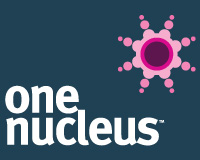The University of Birmingham’s Clinical Immunology Service (CIS) is soon to become the anchor tenant at the forthcoming Precision Health Technology Accelerator (PHTA), after signing up to occupy ~10,000 sq ft of the custom-built flagship research facility.
Providing a comprehensive range of accredited lab services to facilitate the diagnosis of autoimmune and neuroimmunological disease, blood cancers, primary and secondary immunodeficiency, infections and allergy, the CIS receives more than 100,000 blood, marrow, urine and other samples per year.
The CIS team offers the only service of its kind to be embedded within an academic environment, providing an ideal interface between translational and clinical research groups, the NHS, and the pharmaceutical and bio-diagnostic industries.
During Covid-19, the CIS rapidly mobilised its labs to undertake high throughput processing for the NHS and other major national studies. A long-standing partnership with UoB spin-out The Binding Site brought together unrivalled academic, clinical and commercial expertise, and the combined team worked together quickly to deliver a SARS-CoV-2 antibody ELISA in record time. Responding to the need to expand COVID-19 testing capacity across the UK, the laboratory supported the University to set up a COVID-19 testing laboratory as part of the NHS Test and Trace network.
CIS Director, Professor Alex Richter, commented: “The Clinical Immunology Service is a unique intersection of skills with biomedical scientists, clinical scientists and researchers coming together to not only provide NHS diagnostic testing, but also to innovate – we have the expertise to run clinical trials, to develop new diagnostics and then commercialise these and translate them into clinical practice.
“Covid-19 was a turning point for diagnostics. The old model – going to the doctor, having blood drawn and sent to the lab, with results weeks down the line – is becoming obsolete as patients are now used to knowing what’s happening in real time, with lateral flow devices. With the NHS under increasing pressure, faster diagnosis will be transformative. We’ve been working on dried blood spot testing for remote antibody testing; faster tests for certain cancers and infections; and looking at the possibility of testing tears for a more non-invasive method of investigation.
“Being part of the PHTA will mean we can do more with industry partners to further our own research as well as support with theirs – we’ll be using all the skills and experience we’ve built over the past 15 years to speed up our innovation and deliver for patients.”
Professor Gino Martini, PHTA’s CEO, added: “Having the Clinical Immunology Service within the PHTA and working elbow-to-elbow with SMEs and start-ups is a truly exciting development as we head towards our official opening later this year. I know that their expertise in the immunological investigation of patients for diagnostic development will be hugely attractive to potential PHTA residents and collaborators.”
Professor David Adams, Director of Birmingham Health Partners and Dr John Williams, Managing Director, added: “Birmingham Health Partners functions to promote collaboration between our local higher education institutions and NHS. By bringing together our collective strengths in diagnostics within the PHTA, we will create a focal point for clinical-academic-industry collaboration that will help consolidate our capabilities and enable us to develop a BHP ‘diagnostics demonstrator’ that will help drive innovation and transformation across our NHS partners.”
Louise Stanley
L.stanley@phta.co.uk

























